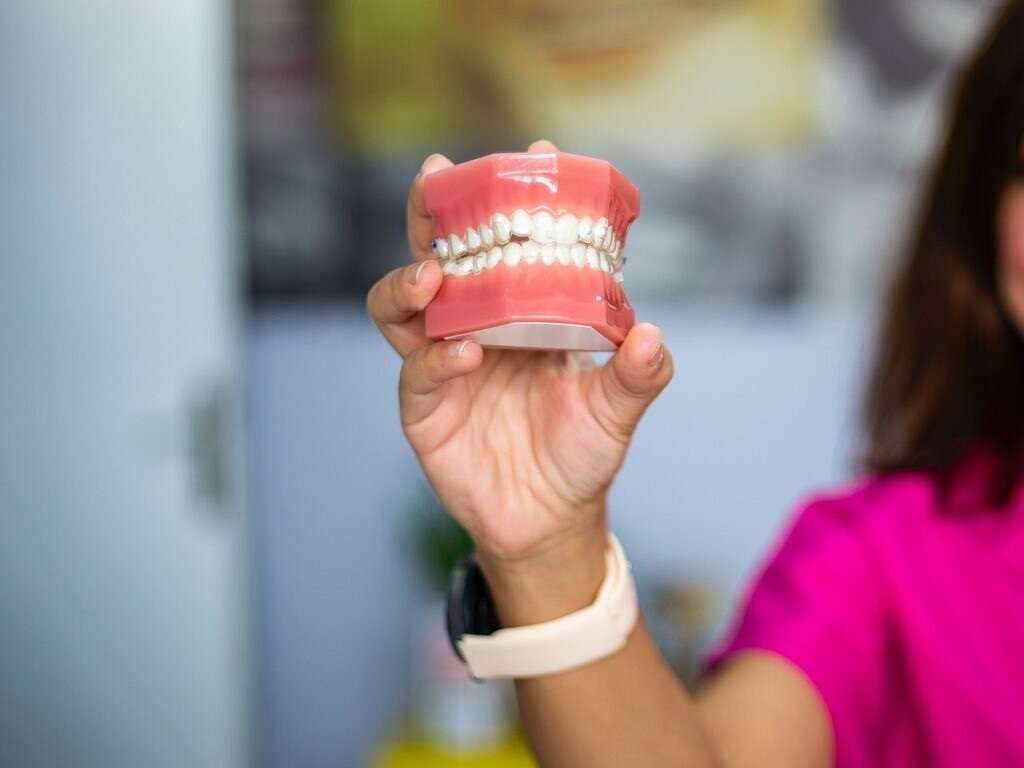What Is a Mouth Ulcer?
Most people will get a mouth ulcer, also called a canker sore, at least once in their lifetime. It is common for someone to notice one of these sores due to discomfort or by visually inspecting the mouth. In fact, as many as one-third of people are thought to struggle with them.
While mouth ulcers are often harmless and resolve themselves on their own, there are some cases that require medical attention. For people that are particularly concerned or uncomfortable, it helps to understand what causes mouth ulcers, how they are treated, and when to seek help.
1. What Is a Mouth Ulcer?
A mouth ulcer is a type of lesion or sore that can form on the cheeks, near the tongue, across the gumline, and on other parts of the mouth. There are several different types of mouth ulcers that can affect a person, including herpetiform, major, or minor canker sores.
These sores are distinct from cold sores, which are clusters of contagious blisters that often appear on the lips. Mouth ulcers are not contagious and can appear alone or in clusters. They are round in appearance with red edges and a pale inside. More severe sores are deeper with uneven edges. Typically, large groups of ulcers appear as small, pinpoint bumps.
2. How Does Someone Get a Mouth Ulcer?
There are many different causes of mouth ulcers, which can vary from lacking several essential vitamins to having a more serious underlying condition, such as celiac disease, HIV/AIDS, or diabetes. Hormonal changes, especially those caused by menstruation, and stress can also trigger the development of these sores.
In addition, some people get mouth ulcers as a result of the mouth having an allergic response or getting irritated due to mouth bacteria, food, or toothpaste. Mouth injuries caused from biting the gums, braces, or other causes can also lead to an ulcer.

3. Are Some People at Higher Risk of Developing a Mouth Ulcer?
While there is not a lot of information available on why some people are more susceptible to developing mouth ulcers, women and adolescents are more likely to have canker sores. The condition also seems to be affected by genetics as mouth ulcers often run in families.
Additionally, people with certain inflammatory diseases, such as chronic inflammatory bowel disease, often develop sores in the mouth. Individuals who have a habit of biting the lips or gums and smokers may be more likely to injure the tissue, causing mouth ulcers.
4. Are Mouth Ulcers Painful?
Mouth ulcers can be very uncomfortable and painful, resulting in a burning or tingling feeling. Often, activities such as eating, talking, or drinking liquids can irritate the sore, causing more pain. People may first notice the canker sore because of the discomfort it causes before noticing any other symptoms.
The more severe the ulcer, the more painful it may be. There is one type of aphthous mouth ulcer called a herpetiform ulcer that takes on the appearance of many small ulcers, which can cause extreme pain. As the name suggests, this type of ulcer is similar in appearance to herpes

5. How Long Do Mouth Ulcers Normally Last?
How long a person may have a mouth ulcer depends on the type and size. In general, canker sores often take between two and four weeks to completely go away. However, more severe cases may leave behind scars on the gums.
Herpetiform ulcers often have the fastest healing time, recovering in as soon as one week. Minor ulcers take approximately two weeks to heal and major ulcers on average take three weeks to fade. It is possible for these lesions to last longer than three weeks in more severe cases.
6. How Can You Treat a Mouth Ulcer at Home?
There are several methods that can be implemented from home to reduce healing time. Rinsing with saltwater, increasing vitamin intake, and using an over-the-counter product are all common at-home treatments.
There are also ways people can reduce pain. Methods include placing ice on sores to reduce swelling, placing tea bags on the ulcer, and applying milk of magnesia. If eating is very painful, it may be a good idea to avoid rough, chewy, or acidic foods until the area has healed.

7. When Should You Be Concerned About a Mouth Ulcer?
In many cases, mouth ulcers are painful but not dangerous. However, there are some situations that warrant a reason for concern. If these criteria are met, further evaluation from a doctor is necessary to ensure there are not more serious conditions causing the sore.
Some people may develop very large, severe sores, have a fever, or get a secondary bacterial infection. Individuals should also see a doctor if they have a non-painful lesion that has lasted longer than three weeks or is starting to spread throughout the mouth. If a sore develops right after starting a new medication, patients should notify their doctor during the next appointment.
8. Can a Doctor Help Get Rid of Mouth Ulcers?
When seeing a doctor or dentist for a mouth ulcer, there are several medical methods that may be recommended to give relief and provide a faster recovery period. Certain prescription mouthwashes or medications can often help.
In other situations, additional treatments may be necessary. A blood test can help identify any vitamin deficiencies or determine if anything may be causing a mouth injury. Cauterizing the wound can also help in more severe situations.

9. Can Mouth Ulcers Come Back?
Many mouth ulcers, especially those that develop due to mouth injury, are not likely to keep coming back after healing. However, some people do experience recurrent ulcers. Professional medical intervention may be useful in these situations to discover why the ulcers are continuing to pop up.
While canker sores are not contagious, if the underlying issue is not addressed, they can return. The most common reasons a person may have a recurrent mouth ulcer is due to a food allergy, inflammatory bowel disease, a nutritional deficiency, a new medication, an anxiety disorder, or stress.
10. How Can You Prevent Mouth Ulcers?
In addition to addressing any potential vitamin deficiencies or contributing conditions, people can help prevent mouth ulcers by practicing good oral hygiene habits, eating a healthy and vitamin-rich diet, avoiding excessive consumption of acidic foods, and keeping stress levels down. It can also help to avoid mouthwashes with sodium lauryl sulfate.
For people with braces or other similar orthodontic appliances, protecting the mouth from sharp edges can prevent injuries that can lead to canker sores. A dentist can provide dental wax or make adjustments to the appliance to help protect the gums.











